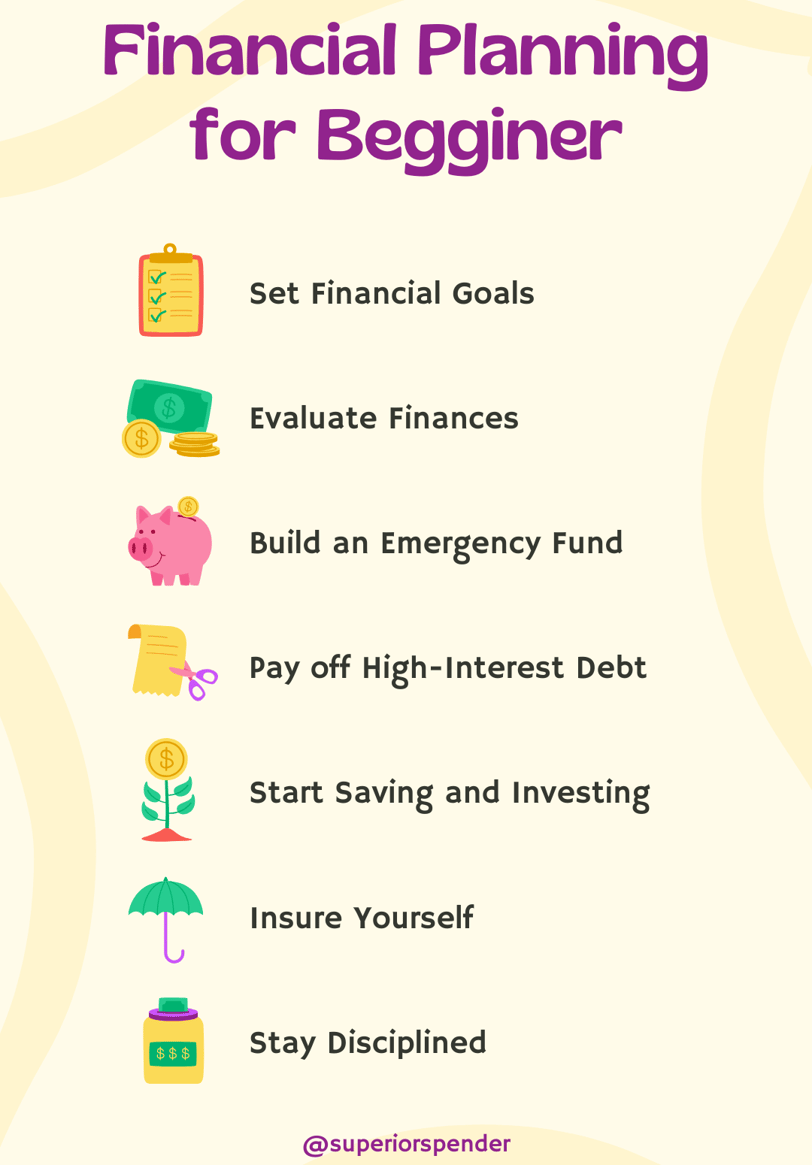
Your Beginner's Guide to Financial Planning: Navigating the Path to Financial Freedom
Gull Rehman
10/9/20234 min read
Do you ever lie awake at night, wondering if you're on the right path to financial security? Have you ever found yourself wishing you had a roadmap to navigate the complex world of personal finance?
If you're nodding along, you're not alone.
Many of us, at some point, have felt that pang of uncertainty when it comes to managing our money. The good news is, you're in the right place because I'm here to be your personal finance coach and guide you through the exciting journey of financial planning.
Let's face it – the world of finance can be intimidating, with its jargon, investments, and budgeting spreadsheets.
But fear not; I've been there too. I vividly remember my early days of financial planning, making both smart moves and occasional missteps.
Along the way, I've picked up valuable lessons and insights that I'm excited to share with you.
In this beginner's guide to financial planning, we'll demystify the process and equip you with practical tips and tricks to kickstart your journey to financial freedom.
Together, we'll explore the fundamentals of personal finance, delve into effective money management, and discover how even small changes can lead to significant financial growth.
So, are you ready to embark on this financial adventure?
Let's get started!
Chapter 1: The Foundation of Financial Planning
Before we dive into the nitty-gritty of financial planning, it's crucial to understand its fundamental principles. Financial planning is not just about budgeting or saving; it's about setting clear goals and creating a roadmap to achieve them.
Here's where we begin:
Setting Clear Financial Goals:
Imagine you're planning a cross-country road trip. You wouldn't just hit the road without knowing your destination, right? Similarly, financial goals act as your destination on this journey.
They can range from building an emergency fund, paying off student loans, or saving for a dream vacation. Take some time to reflect on your goals – both short-term and long-term.
Starting your financial planning journey begins with setting clear and achievable goals.
Creating a Personal Budget
A budget is your financial GPS, helping you allocate your income to various expenses and savings goals. It's not about restriction; it's about control.
Start by listing your sources of income and your essential expenses like rent, groceries, and utilities. Then allocate a portion for savings and discretionary spending.
Learning how to start saving money is a fundamental step in creating your budget.


Chapter 2: Money Management Strategies
Now that we've laid the foundation, let's explore some practical money management strategies that will help you make the most of your hard-earned cash:
Tracking Your Spending:
Have you ever reached the end of the month and wondered where your money went? It's a common experience, but it's avoidable with tracking. Keep a record of your expenses, either with pen and paper or a budgeting app. This simple habit can shed light on your spending patterns and areas where you can cut back.
Effective money management starts with tracking your spending.
Emergency Fund Essentials:
Life can be unpredictable, and unexpected expenses can throw a wrench into your financial plans. That's where an emergency fund comes in handy. It's your financial safety net, providing peace of mind during unexpected situations.
Aim to save at least three to six months' worth of living expenses.
Chapter 3: Saving Strategies for Beginners
Saving money is a cornerstone of financial planning. It's not about how much you make; it's about how much you keep. Here are some strategies to boost your savings:
Automate Your Savings:
Make saving a habit by setting up automatic transfers to a dedicated savings account. This way, a portion of your income is saved before you have a chance to spend it elsewhere.
Choosing the best savings account for beginners can help you maximize your savings.
Pay Yourself First:
Treat your savings like a bill you must pay each month. When you prioritize saving, you ensure that your future self is taken care of.


Chapter 4: Taking Your First Investment Steps
As you progress in your financial planning journey, you'll want to explore investment opportunities. While this can seem daunting, it's an essential step in growing your wealth:
Start Small:
You don't need to be a financial expert to begin investing. Start with a low-cost, diversified mutual fund or exchange-traded fund (ETF). These options allow you to invest in a variety of assets, spreading risk.
Seek Professional Guidance:
Consider consulting with a financial planner or advisor who can help you understand your risk tolerance and create an investment plan tailored to your goals.
Final Thoughts:
Congratulations! You've taken the first steps on your financial planning journey. Remember that financial planning is not a one-size-fits-all approach. It's about creating a plan that aligns with your unique goals and circumstances.
Be patient with yourself, and don't be afraid to seek advice when needed.
Financial planning is a continuous process that evolves as your life does. With the right knowledge, discipline, and determination, you can build a secure financial future and achieve your dreams.
So, keep learning, keep saving, and keep working towards your financial goals.
Your financial freedom awaits!

